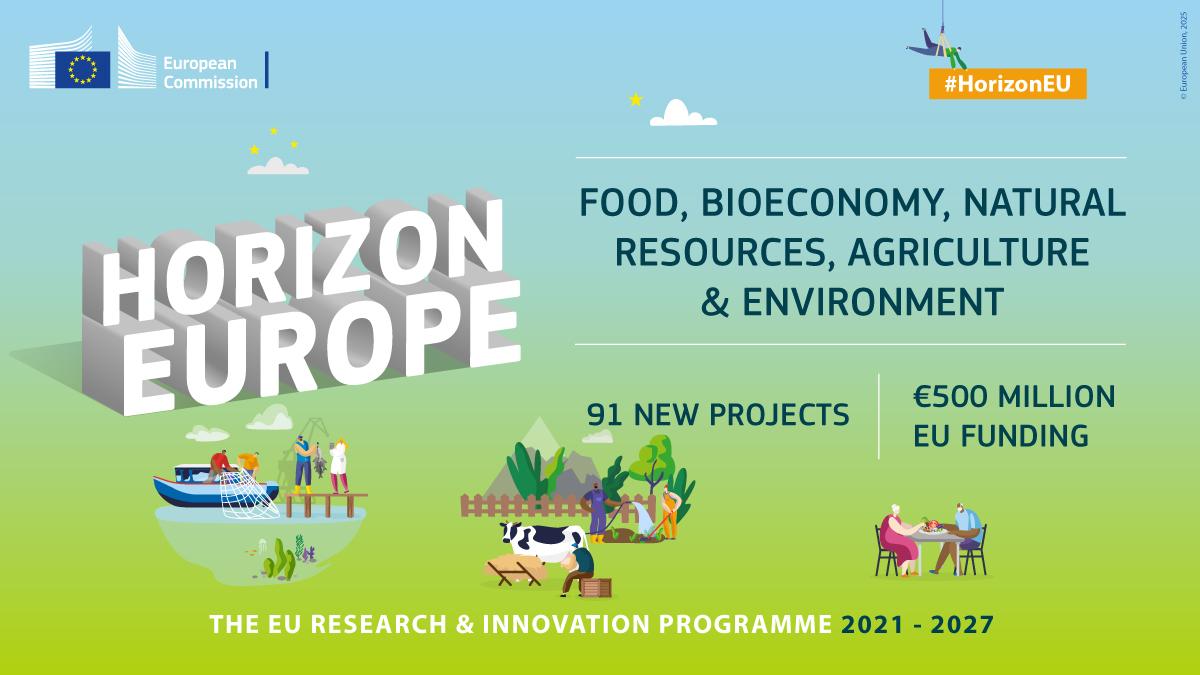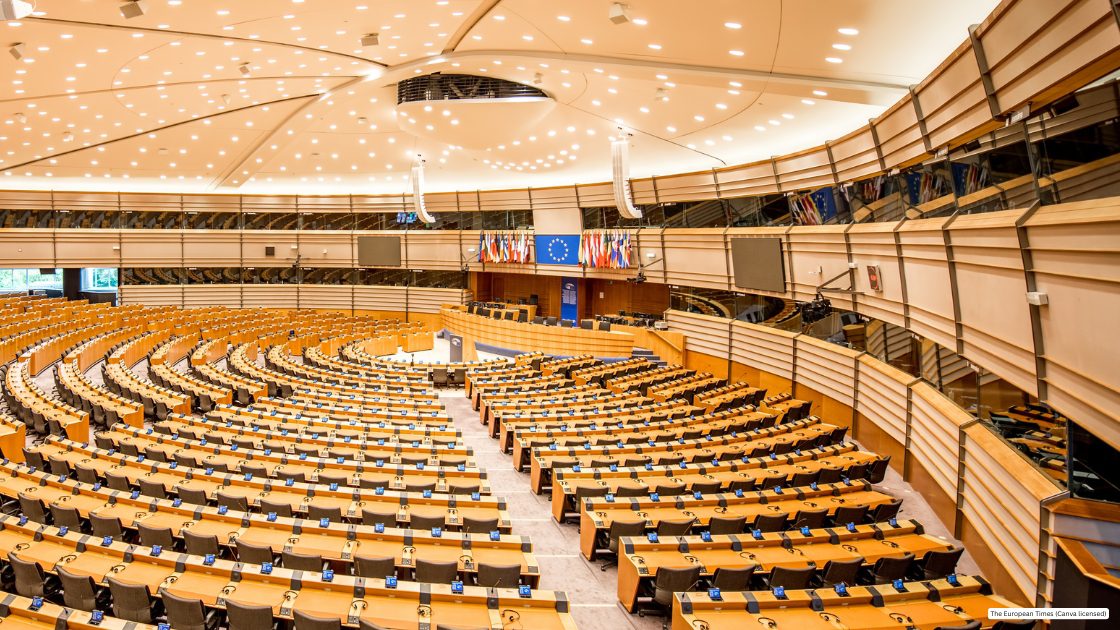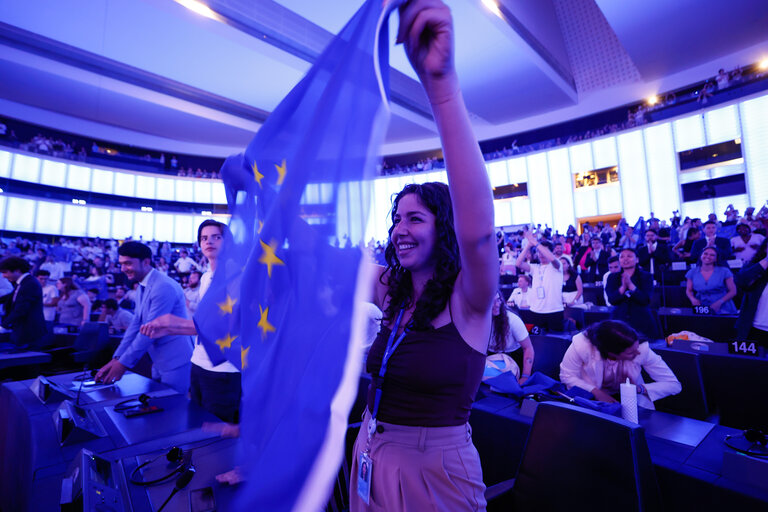Politics
91 new EU-funded projects to deliver innovative research on sustainable food, bioeconomy, natural resources, agriculture, and environment

The 91 new projects are funded through the EU Horizon Europe framework programme for research and innovation, under Cluster 6 “Food, bioeconomy, natural resources, agriculture and environment”. They will be working on delivering the commitments outlined in the EU Green Deal. Namely, to help curb environmental degradation, reverse biodiversity decline, better manage natural resources whilst ensuring food and water security.
The projects have signed their Grant Agreements with the European Commission. Some of them have already begun their research while others will commence shortly.
What will the selected projects do?
Biodiversity and ecosystems services
Projects are expected to help manage the protected area networks and improve species and habitats’ status with a special focus on pollinators. Also, projects will work on integrating biodiversity, ecosystem services and natural capital into public and business decision-making. They will help advance transformative change to tackle societal challenges by using nature-based solutions.
Other projects are expected to improve practices in agriculture, forestry, fisheries and aquaculture to help biodiversity. Projects will use advanced digital technologies and engage society to better connect biodiversity research at EU and global levels.
See projects funded under this call
Fair, healthy and environment-friendly food systems from primary production to consumption
Projects are expected to contribute to preventing and reducing food waste, develop new healthy and sustainable food products and processes, and tackle food fraud. Projects will develop smart tools for healthy and sustainable food provision and analyse the impact of alternative protein sources.
Several projects will use citizens’ science to foster the transition to sustainable food systems. In addition, projects will address food security, climate change adaptation and fair-trade food systems in Africa.
See projects funded under this call
Circular economy and bioeconomy sectors
Projects should boost the transition to a circular economy through innovative solutions and sustainable practices in EU regions and cities and in different sectors – including tourism, furniture and textiles.
Other funded projects will be working on solutions for programmed biodegradation of bio-based materials and products. Several projects will explore organisms capable of thriving in extreme environments to source novel enzymes, drugs, and chemicals for industrial application.
See projects funded under this call
Clean environment and zero pollution
Projects are expected to help remove pollution caused by human activities from fresh and marine waters, soils, and air. Some EU-funded projects will analyse the environmental impacts of food systems and develop techniques to recover and recycle fertilising chemicals to deliver alternative products with reduced environmental impact.
See projects funded under this call
Land, oceans and water for climate action
Projects funded under this call will explore the socio-economic and environmental aspects of agriculture on peatlands and work on improving irrigation practices and technologies in agriculture. Also, projects will develop ocean models to analyse the climate impact in different regions.
Other projects are expected to contribute to the climate-smart use of wood in the construction sector to support the New European Bauhaus. In addition, projects should contribute to the EU-China international cooperation to improve biodiversity monitoring infrastructures and improve synergies between mitigation, adaptation, and conservation.
See projects funded under this call
Resilient, inclusive, healthy, and green rural, coastal and urban communities
Projects funded under this call should boost participation and empower local communities of the Arctic in environmental decision-making. The projects will also analyse the impact of the COVID 19 pandemic on rural communities to better understand the behavioural drivers behind people’s lifestyle choices.
Some of the EU-funded projects will leverage the New European Bauhaus values to reconnect and engage citizens with nature and sustainable food for their well-being and for improved biodiversity.
See projects funded under this call
Innovative governance, environmental observations and digital solutions in support of the Green Deal
The projects should develop EU advisory and thematic networks on forestry, biodiversity, organic farming, and sustainable livestock systems. They will analyse the role of media and marketing in fostering healthy and sustainable consumption practices. Other projects will provide support to the European Partnership for a climate-neutral, sustainable and productive Blue Economy. In addition, they are expected to deliver innovative applications to support the European Green Deal, building on meteorological satellite data.
See projects funded under this call
Number of projects per call for proposals
| Horizon Europe Cluster 6 “Food, bioeconomy, natural resources, agriculture and environment” – 2024 calls | Number of funded projects |
EU grant amount (in €) |
| Biodiversity and ecosystem services | 14 | 76.542.281,25 |
| Fair, healthy and environmentally friendly food systems, from primary production to consumption | 21 | 93418470,8 |
| Circular economy and bioeconomy sectors | 17 | 70.437.447,13 |
| Clean environment and zero pollution | 6 | 37.653.372,26 |
| Land, ocean and water for climate action | 12 | 74.497.327,95 |
| Resilient, inclusive, healthy, and green rural, coastal and urban communities | 4 | 15.494.258,81 |
| Innovative governance, environmental observations, and digital solutions in support of the Green Deal | 17 | 132.938.731,85 |
| Total | 91 | 500.981.890,05 |
How were the projects selected?
All projects were selected in seven competitive calls for proposals, which opened on 17 October 2023. In total, 733 proposals were submitted by the calls’ deadline in February 2024.
The selected projects received the highest marks in a peer evaluation run by the European Research Executive Agency with the help of independent experts.
Further information
For updates on these projects — as well as another innovative research — follow REA on X and LinkedIn and subscribe to the Horizon Europe’s Cluster 6: ‘Food, bioeconomy, natural resources, agriculture and environment’ newsletter for updates straight into your inbox!
Politics
New plan will help EU countries tackle cyber-attacks better


© FRVS+MPCP 2022. The European Times® News is registered as an EU Trademark. All rights reserved. The European Times® and the logo of The European Times® are EU trademarks registered by FRVS+MPCP.
Members/Partners of

About Us
Popular Category
DISCLAIMER OPINIONS: The opinions of the authors or reproduced in the articles are the ones of those stating them and it is their own responsibility. Should you find any incorrections you can always contact the newsdesk to seek a correction or right of replay.
DISCLAIMER TRANSLATIONS: All articles in this site are published in English. The translated versions are done through an automated process known as neural translations. If in doubt, always refer to the original article. Thank you for understanding.
DISCLAIMER PHOTOS: We mostly used photos images that are readily available online, from free sources, or from the people promoting the news. If by any chance it happens that we have used one of your copyrighted photos, please do not hesitate to contact us and we will take it down without question. We do not make profits as this is a not for profit project to give voice to the voiceless while giving them a platform to be informed also of general news, and it is completely free.
Editor Picks
Politics
EYE2025 (European Youth Event): thousands to celebrate the power of democracy | News

EYE2025 (European Youth Event) will be opened by Parliament Vice-president Sabine Verheyen (EPP, DE) on Friday 13 June at 10:00 in the EYE village. Vice-president Nicolae Ştefănuță (Greens/EFA, RO) will take part in a session dedicated to the next long-term budget, on Saturday at 15:00. The closing session, with Vice-president Pina Picierno (S&D, IT), will take place on Saturday at 16:45.
Over the two days, there will be panel discussions with MEPs and other EU decision-makers, as well as with experts, activists and content creators. Debates between MEPs and the young participants will cover climate justice, skills for the future, the EU’s next long-term budget, and freedom of speech and media, among many other topics.
Commissioner for Intergenerational Fairness, Youth, Culture and Sport Glenn Micallef will lead a Youth Policy Dialogue on Friday at 11:00, and take part in a panel discussion on young people’s mental health that afternoon. Executive Vice-President of the Commission, Henna Virkkunen will join in a conversation on how technology can strengthen democracy, on Friday at 15:00.
Other guest speakers are democracy activist Daria Navalnya, the Kayapo Amazonian tribal leader Chief Tau Metuktire and the Mayor of Strasbourg Jeanne Barseghian.
The programme also includes workshops on a wide range of issues that concern young people, from disinformation to housing and migration. Quizzes, tours, artistic performances, storytelling workshops and concerts are other options among more than 450 activities organised for the sixth edition of EYE.
All sessions in the hemicycle will be streamed live on the EYE2025 Facebook page and via Parliament’s Multimedia Centre. More details about the schedule, speakers and activities are available on the European Youth Event website.
Press briefing
On Friday 13 June at 16:30, there will be a press briefing with Vice-president Verheyen on media freedom in the EU, in the Daphne Caruana Galizia press conference room. You can follow it live here.
Source link
Politics
Galician healthcare system receives nearly €510 million in EU support for its modernisation

The European Commission supports the development of the new A Coruña university hospital complex (CHUAC) in the city of A Coruña, located in the Spanish region of Galicia. The grant of nearly €60 million awarded under the Public Sector Loan Facility (PSLF), as part of the Just Transition Mechanism (JTM), complements a loan of €450 million provided by the European Investment Bank (EIB), and Xunta de Galicia’s own resources, bringing the total investment to €600 million.
This social infrastructure project of regional interest aims to expand and modernise the existing hospital complex in A Coruña. It is one of Xunta de Galicia’s major actions to strengthen its public healthcare system. The new hospital complex will include state-of-the-art infrastructure and facilities to provide comprehensive and high-quality healthcare and medical services for patients.
The resulting modern and sustainable healthcare infrastructure will improve the provision of health services and the quality of life of the citizens of Galicia, which in turn will enhance regional convergence with a significant impact on the local economy and employment.
Thanks to this project, around 564 000 people are expected to benefit from more efficient, accessible and quality health services in A Coruña and the surrounding areas. The project is also expected to create an estimated 6 140 direct and indirect jobs related to health infrastructure, representing approximately 1.3% of the employed population in A Coruña. With its energy efficiency measures, bioclimatic architecture, as well as sustainable and smart resources management, the project can substantially contribute to climate change mitigation.
This investment therefore plays a crucial role in mitigating the long-term socioeconomic consequences of the coal-fired plants closures in the region, while promoting a sustainable and an inclusive recovery for Galicia in the context of the region’s ageing demographic and green transitions.
Emma Toledano Laredo, Director at the European Commission (DG REGIO), said:
The European Commission, together with CINEA and the EIB, is very proud to bring the new A Coruña university hospital complex to life thanks to the Public Sector Loan Facility. This green, innovative and people-first project will enhance the provision of healthcare to Galicians, while bringing jobs to the region. This is yet another example of how a just and green transition can bring improvement in all sectors of a regional economy and its people.
Paloma Aba Garrote, Director of CINEA, added:
The new A Coruña university hospital complex is an excellent example of how the Public Sector Loan Facility can support European regions in their transition towards climate neutrality and improve people’s lives. Together with our partners, we are proud to invest in a sustainable and modern healthcare infrastructure, which will provide high-quality and accessible services for Galicians while fostering social cohesion, regional convergence and sustainability.
A spokesperson for the Xunta de Galicia regional government stated:
This project aiming to modernise and expand the A Coruña university hospital complex is a fundamental investment to develop the Galician healthcare infrastructure. Galicia is the first Spanish region to receive support from the Public Sector Loan Facility. Moreover, the new CHUAC project has been awarded the biggest PSLF grant so far, amounting to €59.3 million.
About PSLF
The Public Sector Loan Facility (PSLF) is the third pillar of the Just Transition Mechanism (JTM) – a key tool of the European Green Deal Investment Plan to make sure that no one and no region is left behind in the transition to a climate-neutral economy.
The PSLF combines loans from the European Investment Bank (up to around €6-8 billion) with grants from the European Commission (up to €1.3 billion). The combined support is designed to mobilise additional investments for public sector entities in the regions most affected by the green transition as identified in the Territorial Just Transition Plans, to meet their development needs as they move towards a climate-neutral economy. Each Member State creates these plans to identify the challenges faced by just transition regions, along with their development needs and targets for 2030.
The combination of the European Investment Bank loan and the EU grant will help fund projects that do not generate enough revenues to cover their costs.
PSLF is managed by DG REGIO and implemented by CINEA.
About DG REGIO
The Directorate-General for Regional and Urban Policy (DG REGIO) is the department of the European Commission responsible for EU policies on regions and cities. It develops and carries out the Commission’s policies on regional and urban policy. It assists the economic and social development of the developed and less developed regions across the European Union.
About CINEA
The European Climate, Infrastructure and Environment Executive Agency (CINEA) is an Executive Agency established by the European Commission to implement parts of EU funding programmes for transport, energy, climate action, environment and maritime fisheries and aquaculture. CINEA aims to assist its beneficiaries, establish strong partnerships, deliver high-quality programme and project management, foster effective knowledge sharing and create synergies between programmes – to support a sustainable, connected, and decarbonised Europe.
About the EIB
The European Investment Bank (EIB), whose shareholders are the 27 Member States of the European Union, is the EU’s long-term financing institution. The EIB provides loans to the public and private sectors to support high-quality investments contributing to the achievement of the EU headline targets.
Visit the PSLF webpage on CINEA website to find out more about the Facility and the projects it funds.
-
EU & the World5 days ago
Aurora Borealis Forecast: Where & When to See the Northern Lights Tonight
-

 Sports7 days ago
Sports7 days agoChampions League Final 2024-2025: PSG-Inter, official lineups
-

 EU & the World6 days ago
EU & the World6 days agoRihanna’s Parents: About Her Late Dad Ronald Fenty & Mom Monica Braithwaite
-

 Sports6 days ago
Sports6 days agoOfficial: Damien Comolli new general manager of Juventus.
-

 EU & the World6 days ago
EU & the World6 days agoLoretta Swit’s Net Worth: How Much Money the ‘M*A*S*H’ Alum Had
-

 EU & the World6 days ago
EU & the World6 days ago‘King of the Hill’ Revival: Upcoming Hulu Sitcom’s Release Date & More
-

 Sports7 days ago
Sports7 days ago“Pecco Bagnaia is a'shadow”: the'former driver celebrates Marc Marquez
-

 EU & the World6 days ago
EU & the World6 days agoTaylor Swift’s Net Worth: How Much Money She Has in 2025








